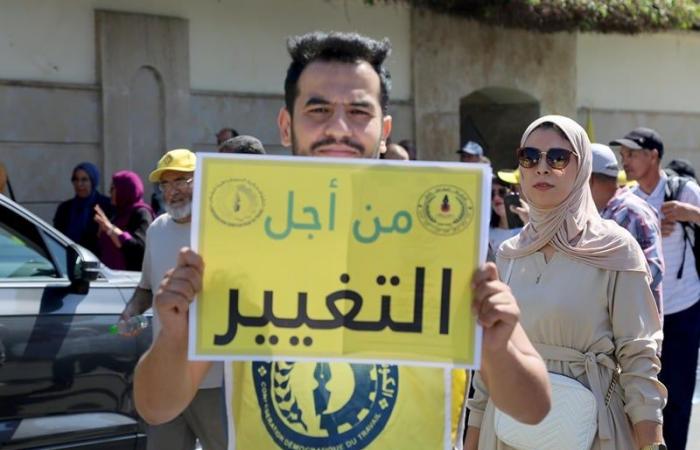The National Union of Civil Servants of Higher Education and University Residences, affiliated with the Democratic Confederation of Labor (CDT), held an extraordinary meeting on June 15, 2024 to announce the program of struggle planned for this month. The atmosphere of Aid Al Adha will not have calmed the protests in the sector.
The session follows the meeting held on June 14, 2024 at the headquarters of the Ministry of Higher Education, bringing together the national secretaries of the most representative unions as well as the directors of legal affairs and human resources.
During this meeting, the ministry presented a new proposal for classification of categories in the special status project and sought approval from the national secretaries. However, the national secretary of the union refused this request, believing that “ the meeting was premature and it was necessary for the technical committee to first finalize its work on the draft special status”. He also insisted that the next meeting of secretaries general be held in the presence of the minister.
In a powerful press release, the union informs higher education civil servants that the ministry’s proposal, presented on June 14, 2024, concerns a new classification of higher education civil servants, based on a distribution by tasks. This proposal is limited to two categories: Educational and social support category, including the following subcategories: University guidance advisor framework, Psychological and social assistant framework, Educational support and research engineering framework and Educational technical framework
As for the university management category, it includes the following subcategories: University administrator executive, Specialist management executive and Technical support executive. This classification also includes professor-researchers, without specifying whether it is a solution for doctorate holders and communication teachers or whether it concerns professor-researchers in higher education.
In this regard, the union categorically refuses the inclusion of higher education professors in the special status of civil servants, unless specific provisions are provided for communication teachers and doctorate holders.
It further notes the absence of engineers, communications teachers and central administration administrators in the proposed classification.
The office is surprised to have lost a year of discussions and numerous meetings to return to a classification based on tasks rather than on levels. This method, initially suggested by the CDT, links the tasks of civil servants to the Jobs-Skills Reference (REC), despite repeated criticism on this subject.
Furthermore, the union considers that the lack of coordination between the ministry’s services, in particular between the Human Resources Directorate and the Legal Affairs Directorate, represents poor management having caused a loss of precious time, bringing the work back to its point. departure.
Denouncing the change in the working methodology adopted for the preparation of the special status project, a method approved by the ministry itself, the union expresses its dissatisfaction with this repetitive scenario.
In the same vein, higher education officials point the finger at the irresponsible management of the Ministry of Higher Education regarding the project for a special status for civil servants.
And to this end, the office demands that the unions receive the draft special statute before the next meeting, scheduled for June 24, 2024, with the integration of all the modifications made by the Directorate of Legal Affairs or proposed jointly by the unions , in order to make up for lost time (two and a half years).
What’s more, he requests the involvement of all potential stakeholders in the preparation of the special status project from the next meeting (representatives of the Civil Service, representatives of the Ministry of Finance, Directorate of Legal Affairs, etc.).
The office decides to implement the first part of the mobilization program, including sit-ins in front of university presidencies and central administration, a 24-hour national strike, and a boycott of the next academic year. The dates for these actions will be set immediately after the technical committee meeting on June 24, 2024.






